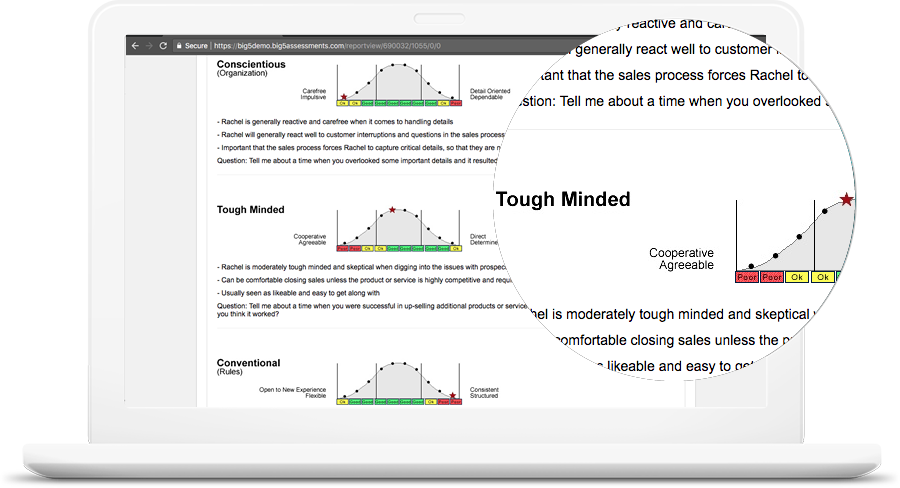Personality Assessments – Five Factor Model (FFM)
Your personality has a huge influence on who you are personally and professionally. In fact, personality plays an essential role in explaining some of the variation in work performance; some people are well organised, some are care free. Some people are shy, some are more outgoing. Some people are warm and friendly; some are more skeptical and direct. Some people are creative and open to new ideas, some people prefer structure and rules.
The good news is that there is a place for everyone in the variety of jobs available. The bad news is that personality mismatches, or recruiting people with poor job fit, in the hiring process can lead to unnecessary employee turnover and underperformance in your work teams. This employee turnover and underperformance costs your business time and money, whereas recruiting people with a good job and company fit will pay you in dividends.
Establishing A Candidates Job Fit (Benchmarking) Ensuring Round Pegs in Round Holes

The predictive power of benchmarking lies in the ability to compare your applicants to recognised high performers in the same role. Our system benchmarks are carefully created by a team of occupational psychologists ready for you to use.
Xel’s Personality Questionnaire measures your applicant’s key personality traits and compares them against a benchmark of high performers in the same role. This results in an individual job fit score. You can select from over 150 benchmarks or with our help create a custom benchmark based on your own top performers.
Xel’s Personality Questionnaire is based on the well-accepted Five-Factor Model (FFM) of core personality traits often referred to as the ‘Big Five’. The Big Five Personality Traits are:
- Conscientiousness vs. Carefree. Describes the degree to which the individual is persistent, motivated, and organised, ranging from being highly disciplined and dependable to being carefree.
- Likeable vs. Tough-Minded. Describes the degree to which the person is pleasant and agreeable, ranging from being warm, tolerant, and tactful, to being tough-minded, skeptical and direct.
- Unconventional vs. Rules Orientated. Describes the degree to which the individual is predictable, rules oriented and structured, to being open to new ideas, adventuresome and inconsistent.
- Extroversion vs. Introversion. Describes the style and focus of an individual’s emotional energy, ranging from being outgoing, dominant, ambitious, and sociable, to being introverted, shy, and quiet.
- Stability vs. Sensitivity. Involves the degree to which an individual is emotionally stable and resistant to stress, ranging from being well-adjusted, calm, self-confident, and poised, to being sensitive and anxious.

In addition, a ‘Teamwork Scale’ is included which measures the applicant’s attitudes towards teamwork versus individualised work environments and a ‘Good Impression Scale’ which is a validity scale that measures the degree to which the person has responded frankly to the test items or is responding in such a way as to make a good impression.